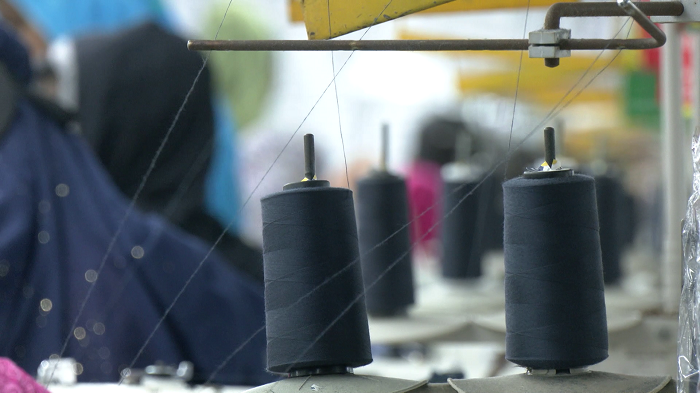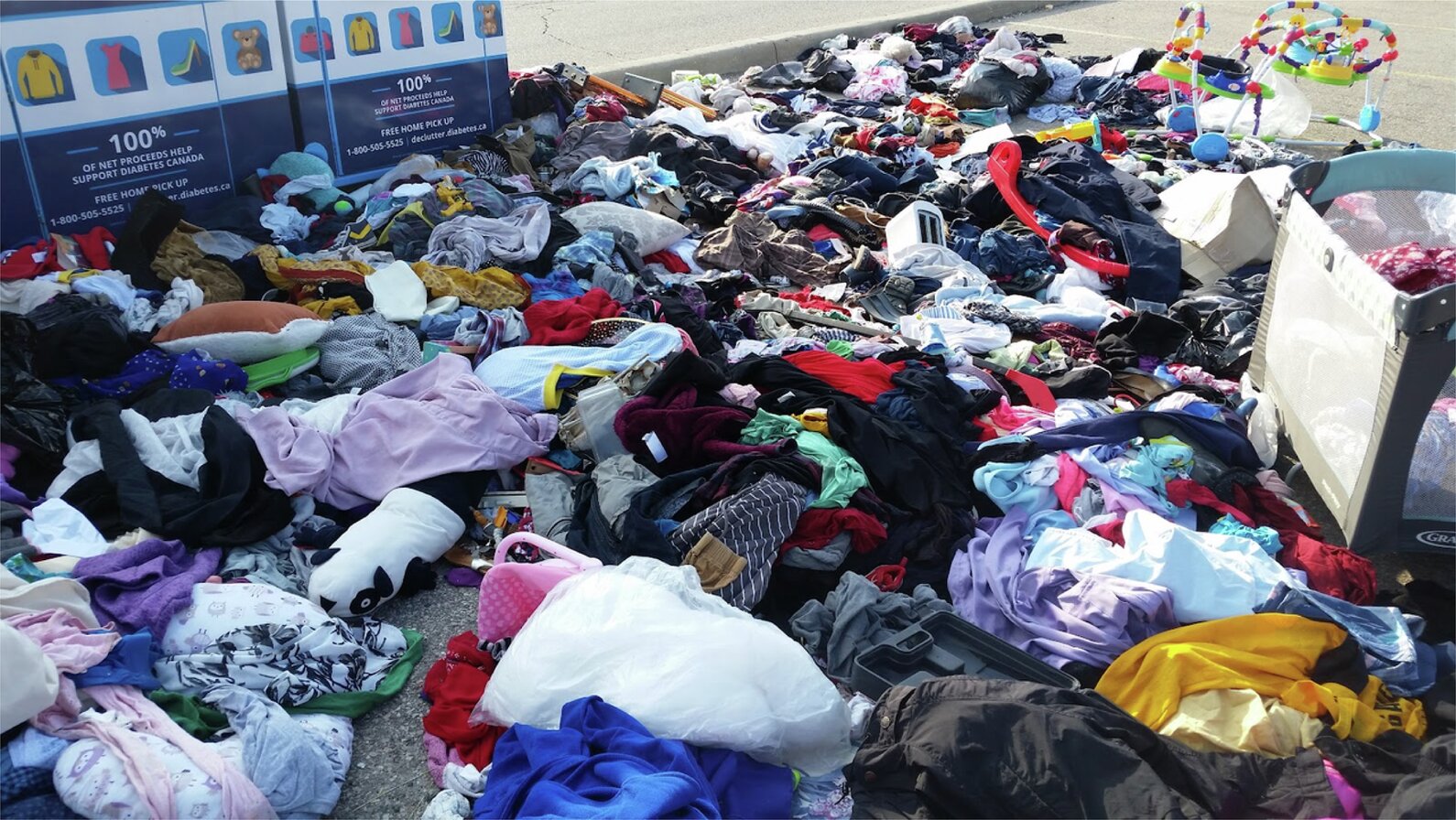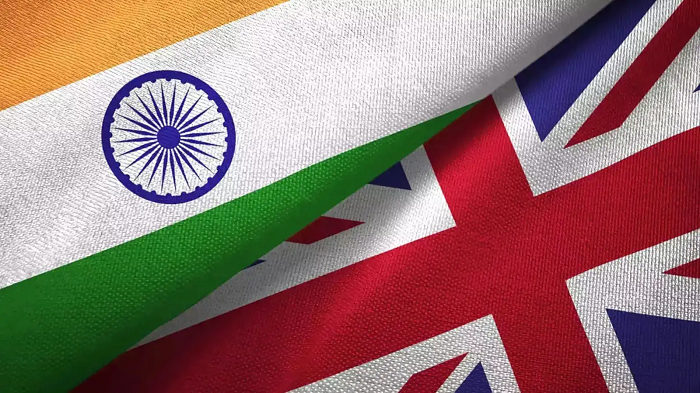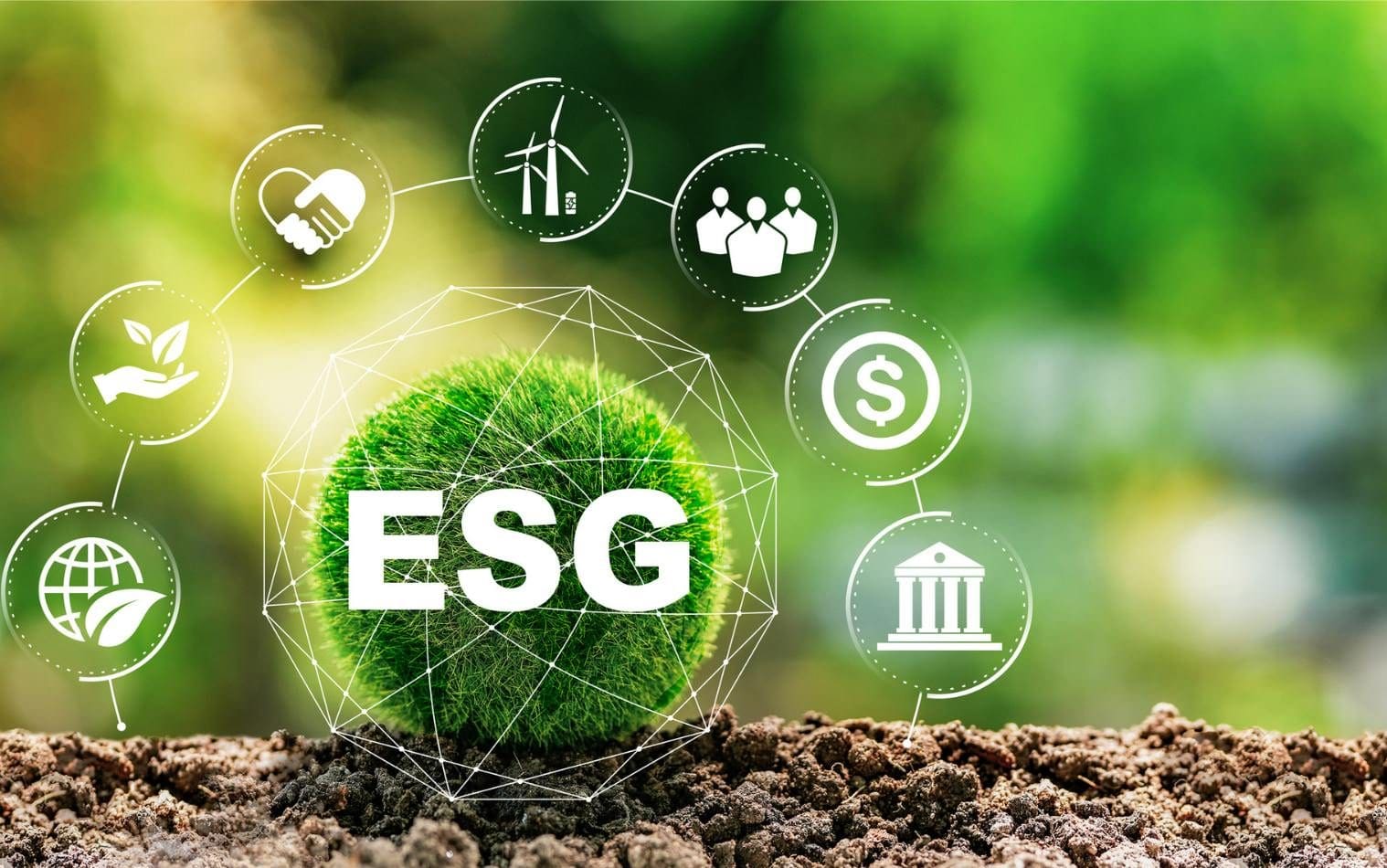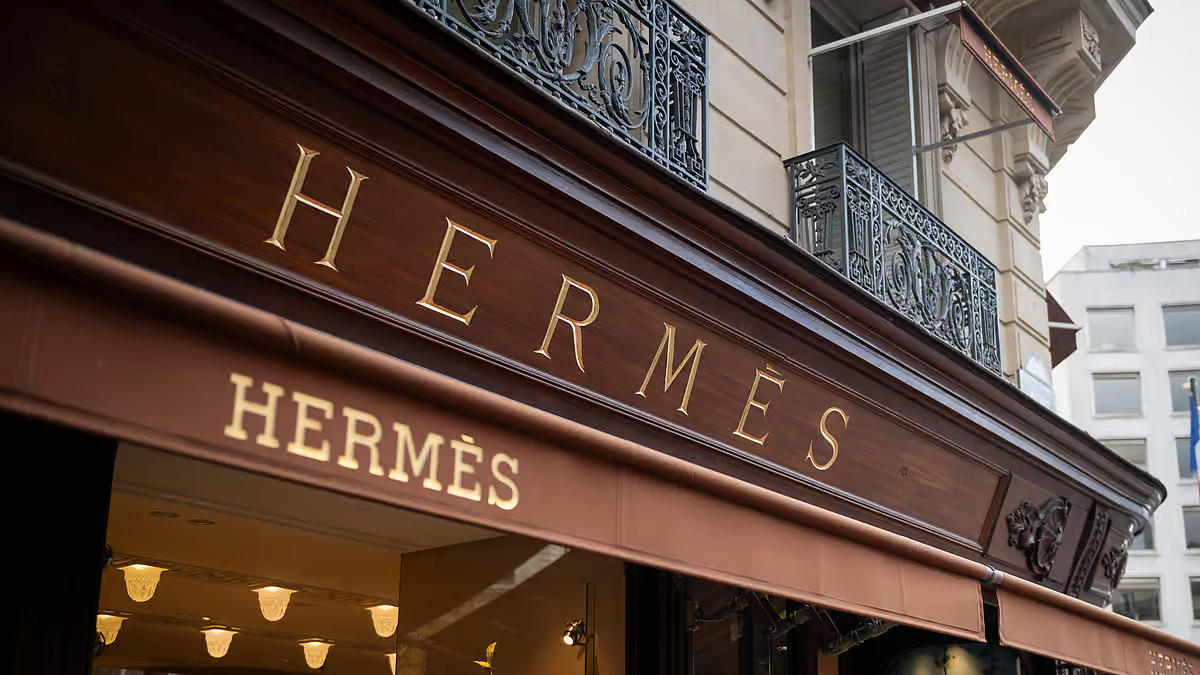From August 04-10, 2024 apparel retailer Target will host its first-ever chain-wide Denim Take Back Event, inviting consumers to bring used denim of any brand to any Target store for recycling. In return, participants will receive a 20 per cent discount code through Target Circle, which can be used toward the purchase of new denim apparel. The discount applies to all denim apparel, including Target-owned brands like Universal Thread, Wild Fable, Goodfellow& Co, and Cat & Jack, as well as national brands like Levi's.
To receive the discount code, customers must be Target Circle members. The event is strategically timed to coincide with the back-to-school shopping season. Target's fall denim collection features a variety of styles, from baggy and cargo silhouettes to wide-leg and flare fits.
Gena Fox, Senior Vice President, Merchandising-Apparel and Accessories states, the new Denim Take Back Event enables families to give their used denim a new life. The Target Circle deal makes it more affordable for guests to update their denim wardrobes while contributing to waste reduction and keeping used denim out of landfills, she adds.
Customers can bring up to five denim items, regardless of condition, and drop them off in designated in-store boxes. The collected denim will be recycled by Target's trusted partners to create new products such as housing insulation, packaging, and appliances.
The event addresses the increasing consumer interest in sustainable products and waste reduction initiatives, as per a Target spokesperson, It also aligns with Target's commitment to fostering inclusive and sustainable brands and experiences. Since launching the Car Seat Trade-in Program in 2016, Target has recycled 2.6 million car seats and 39.7 million pounds of materials.
Parent company of Donna Karan and Karl Lagerfeld, G-III Apparel Group has expanded its stake in AWWG to 19 per cent from the current 12 per cent. This will enable the Spanish Group, which owns brands like Pepe Jeans London, Hackett, and Façonnable, maximise its growth opportunities in Europe, says Morris Goldfarb, Chairman and CEO, G-III Apparel.
As part of the new agreement, AWWG has become the official agent for DKNY, Donna Karan, and Karl Lagerfeld in Spain and Portugal. This partnership allows AWWG to leverage G-III's operations in North America to expand its market presence, while G-III will strengthen its foothold in the Iberian Peninsula and capitalise on AWWG's extensive network in India, a rapidly growing fashion market.
The investment is a critical component of AWWG's growth plan, supporting the international expansion of its own brands and aligning with its multi-channel strategy initiated in early July. Owned by M1 Group, L Catterton, and founder Carlos Ortega, AWWG recorded sales of €604 million for the FY 2022/2023 and projects revenues of €633 million for 2023/2024. By 2027, the group aims to reach €850 million in sales, leveraging its presence in 86 countries and a network of over 3,500 sales outlets. AWWG employs around 4,500 people worldwide, with offices in major cities including Madrid, Barcelona, London, and Mumbai.
The global trading and distribution arm of the Tata Group, Tata International has unveiled a new eco-friendly product under its Earthcare Leather range, Phoenix Leather.
Developed in partnership with the Central Leather Research Institute (CLRI) in Chennai, Phoenix Leather marks a significant advancement in sustainable leather technology.
Phoenix Leather is produced using the patented ‘Genocorium’ process, which transforms trim waste from leather production into high-quality reconstituted leather sheets. This innovative technology repurposes corium waste, significantly reducing water pollution, depletion, and greenhouse gas emissions typically associated with traditional leather manufacturing.
Featuring Phoenix Leather alongside bio-based and chrome-free/metal-free/aldehyde-free options, the Earthcare Leather range underscores Tata International's commitment to circularity and sustainability in the leather industry. Phoenix Leather stands out for its eco-friendly production process and high quality, meeting the stringent requirements of leather product manufacturers.
PRajasekaran, Business Head-Finished Leather Business, Tata International, states, the newEarthcare Leather range aims to lead the sustainable development of the leather industry. The company plans to increase the percentage share of Earthcare Leather from the 27 percent of its total production to 50 per cent in the next four years.
Citing inflationary pressures that dampened consumer spending on apparel despite ongoing discounts, Indian clothing retailer Arvind Ltd reported a 40 per cent drop in profit during Q1, FY25.
The company’s consolidated net profit declined to Rs393.1 million ($4.7 million) during the quarter, from Rs658.7 million in the corresponding quarter of the previous year.
Indian textile manufacturers faced a challenging demand environment throughout fiscal year 2024, as consumers were hesitant to spend on discretionary items. The retail inflation rate for the April-June quarter hovered around 5 per cent, primarily due to high food prices, which led to reduced spending on non-essential items.
Arvind Ltd also experienced a 1 per cent decline in revenue from operations, with revenue from its core textile segment—which constitutes 73 per cent of total sales—dropping by 5 pre cent year-on-year. The company also highlighted issues such as ‘illegal workers' unrest’ that disrupted operations at its largest factory for 21 days, impacting its woven and denim segments and causing an estimated Rs2 billion loss in revenue.
Total expenses for the company rose by 1 per cent, further squeezing its margins. The advanced materials segment, which includes fabrics and protective gear for construction work, also saw a decline of about 4 per cent.
At the 14th BRICS Trade Ministers’ Meeting in Moscow last week, Sunil Barthwal, Commerce Secretary, emphasized on the need for collective efforts to provide outcome-oriented support for MSMEs, which form the backbone of the industrial ecosystem and drive economic growth.
Emphasising on the importance of integrating MSMEs into Global Value Chains (GVCs), Barthwal reiterated the ‘Jaipur Call for Action issued during India's BRICS Presidency in 2023, which focused on enhancing access to information for MSMEs. He also praised the Russian Presidency for its efforts to compile essential information about MSMEs among BRICS members.
He emphasised, international cooperation in areas such as research and development, technology transfers, joint ventures, and business development opportunities are keys to supporting MSMEs.
Further, referring to India's success in developing an open-source India Stack of critical Digital Public Infrastructure (DPI),Barthwal expressed India's willingness to share its experience with BRICS countries in areas like digital payments, e-commerce, national identity, banking, and education.
He highlighted the need for strengthening the multilateral trading system with the World Trade Organisation (WTO) at its core. He also stressed the importance of effective functioning of Joint Value Chains, expanding MSME interactions, and leveraging India's success in digitalisation and e-commerce. Additionally, he emphasised the relevance of cooperation among Special Economic Zones (SEZs).
The BRICS Trade Ministers' Meeting underscored the critical need for collaboration and support for MSMEs within the BRICS countries. By focusing on key areas such as integration into GVCs, digital infrastructure, and international cooperation, BRICS nations aim to bolster the MSME sector, driving economic growth and industrial development.
The Australian Fashion Council (AFC) and Sunset Lover have launched an initiative to save the iconic Australian-owned knitting mill, Silver Fleece, and preserve the cherished craft of Australian wool knitting. The revitalisation of the 73-year old mill is being led by Melanie and Dean Flintoft, Founders, Sunset Lover.
Established in 1951, Silver Fleece is renowned for its Australian craftsmanship and employs 20 skilled staff and technicians, primarily women, including younger employees dedicated to preserving the artisan craft.The knitting mill provides a premier platform for producing highly sought-after Australian-made products.
JaanaQuaintance-James, CEO, AFC, states, investing in Silver Fleece showcases the excellence and resilience of Australian craftsmanship, supports the female workforce, upholds the legacy of the Australian wool and textile industry, and helps reduce environmental impact.
Currently operating at 50 percent capacity, the mill has substantial opportunities for expansion due to rising demand for Australian-manufactured and sustainable products. Potential clients include Qantas, South Australian Police, and thousands of Australian schools and not-for-profit sporting clubs.
The mill’s Japanese knitting machines and established contracts, including producing jumpers for the Australian cricket team and school wear for more than 75 schools, highlight its significant potential,says Dean Flintoft.
There is immense potential to revitalise this mill, and investors who value local manufacturing to raise $1 million are being sought. This investment will safeguard jobs, protect Australian craftsmanship, and have a long-term positive impact on the wool industry, adds Flintoft.
The Adelaide-based mill entered administration last month, and a general meeting on June 26 resolved to wind up the company. Liquidators Daniel Lopresti and Simon Richard Miller have been appointed, and $1 million needs to be raised to prevent liquidation and secure the future of this iconic business.
Celebrating the theme, ‘Somos’ (‘We Are’), the 35th edition of Colombia's premier fashion event, Colombiamoda concluded successfully in Medellín. Attended bymore than 600 brands, the event connected over 12,000 buyers from 40 countries with more than 70,000 visitors, according to the event’s organiser, Inexmoda,
Inexmoda described this year’s Colombiamoda as a tribute to the last 35 years of Colombian fashion, highlighting the unique factors that make the country's textile industry globally competitive. A new feature in this year’s event was the City Circuit methodology, which showcased different parts of Medellín beyond the traditional Plaza Mayor venue, emphasising fashion's transformative power.
Sustainability was a focal point this year, with the Circular Fashion Pavilion showcasing brands committed to eco-friendly practices, from material selection to garment production, as highlighted by PolitécnicoGrancolombiano University.
The event kicked off on July 22 with designer NicolásRivero’s runway show. Titled ‘Proceso’ (Process), Rivero’s collection showcased 30 garments made from natural fibers like linen, silk, alpaca wool, cotton, and banana fiber stitches, emphasising material exploration and textile craftsmanship.
Notable among the daily runways was Beatriz Camacho’s show. In collaboration with Bronzini, an affordable clothing brand sold in Éxito supermarkets, Camacho presented ‘Despertarse en La Habana’ (To Awaken in Havana) to 1,200 attendees. Despite economic challenges, Camacho emphasised the importance of democratic and inclusive fashion, using eco-friendly fibers even for mass-produced items.
Peruvian designer Sandra Weil, making her Colombiamoda debut, closed the event. Founded in Mexico City, her eponymous brand has grown over 12 years, as reported by El Colombiano.
Known as Colombia’s fashion capital, Medellínhas a rich textile history dating back to Coltejer’s establishment in 1907. The city is a pivotal economic hub, with the textile sector exporting $8,974 billion pesos ($2.23 million) in 2018, accounting for 42 per cent of Colombia’s total textile exports. According to Inexmoda’s Fashion Observatory February 2024 report, Medellín represented 9.9 per cent of the national textile market in 2023, with companies exporting textiles worth $53.6 millionlast year.
Both the Export Promotion Bureau (EBP and the Bangladesh Bank have presented contrasting data on apparel export earnings by Bangladesh during the period spanning July-May ’23-24.
While the Export Promotion Bureau (EPB) reported a 2.85 per cent growth in apparel exports earnings during the period, figure from the Bangladesh Bank (BB) indicate a 5.2 per cent decline in RMG earnings for the same period.
According to BB's corrected data, Bangladesh earned $33.04 billion from RMG exports in the first eleven months of FY 2023-24, compared to $34.86 billion in the previous year. This represents a significant downward revision from EPB's earlier estimate of $43.85 billion for the same period. Compared to $42.63 billion the previous year, The EPB's figure indicates a 2.86 per cent growth.
Conversely, BB's calculations show a 5.3 per cent decline in net income from garment exports to $17.60 billion from $18.58 billion the previous year. Additionally, revenues from woven products decreased by 5.1 per cent to $15.40 billion from $16.22 billion the previous year, as per the BB data.
Exporters believe, various factors contributed to the decline in income from the garment industry. One of these includes the significant decline in the unit cost of garments, alongside a slight downward trend in work orders due to global political unrest and the Russia-Ukraine war.
Mohammad Hatem, Executive President, Bangladesh Knitwear Manufacturers and Exporters Association (BKMEA), affirms, rising fuel, electricity, and gas prices have increased production costs. However, buyers have failed to raise their product prices. Consequently, exporters have been unable to secure orders, he explains. Alack of cooperation from banks and harassment by customs and revenue officials is further weakening the competitiveness of these exporters, he adds.
Global political unrest, the Russia-Ukraine war, and the economic slowdown are also leading to a negative growth in export earnings in Bangladesh, adds Hatem.
SM Mannan Kochi, President, Bangladesh Garment Manufacturers and Exporters Association (BGMEA), adds, issues like increased production costs, including higher worker wages and electricity and fuel prices, are making it challenging for exporters to compete on price. Compounding this issue is the reduction in product prices by buyers, leading to a decline in exports.
To sustain positive growth in export earnings, the government needs to ensure uninterrupted gas and power supply, adds EPB.
The Government aims to set up seven PM Mega Integrated Textile Region and Apparel (PM MITRA) parks in Greenfield/Brownfield siteswith world-class infrastructure including plug and play facility. To be set up with an outlay of Rs. 4,445 crore by 2027-28, each of these parks will generate 1 lakh direct and 2 lakh indirect jobs on completion.
One of these parks is being set up in Virudhanagar Tamil Nadu. A Special Purpose Vehicle (SPV) i.e. ‘PM Mega Integrated Textile Regions and Apparel Park, Tamil Nadu,’ has already been incorporated for the project with the Government of Tamil Nadu holding 51 per cent stake in the SPV and remaining 49 per cent being held by the Government of India. The project has achieved both the environmental Clearance as well as layout approval from Directorate of Town and Country Planning. The government has also signed MoUs worth Rs 1,200 crore for investment in the park.
The Textile Ministry had earlier introducedthe Scheme for Integrated Textile Park (SITP) to support the development of textile parks across the country with world-class, state-of-the-art infrastructure. The scheme was in implementation up to March 31, 2021. However, the Scheme the government has now subsumed the scheme under the umbrella Scheme of Textile Cluster Development Scheme (TCDS) and allotted an outlay of Rs.568.15 Crore for completing ongoing projects only.
The cabinet aims to soon extend the benefits of production-linked incentive (PLI) schemes in the textiles sector. The government’s plans include lowering the investment threshold for the textile PLI for man-made fabric (MMF) garments and technical textiles, and expandingthe range of MMF products covered. Additionally, the government also plans to include apparel in the scheme. The schemeis yet to gain momentum, as per a government official.
Separately, the commerce and industry ministry proposes to invest Rs2,600 crore in the leather and footwear sectors.
Currently, the PLI program spans 14 sectors, including mobile manufacturing and specified electronic components, medical devices, automobiles and auto components, pharmaceuticals, specialty steel, telecom and networking products, and white goods. The total budgetary allocation for various PLI schemes has been increased by 88 per cent to Rs 16,092 crore for FY25. All these 14 PLI schemes were approved with an outlay of Rs1.97 lakh crore, and by the end of May, the cumulative disbursement to beneficiaries had reached around Rs9,700 crore.
- 1
- 2
- 3
- 4
- 5
- 6
- 7
- 8
- 9
- 10
Blossom Premiere Vision returns in June to support luxury fashion's shifting nee…
As the global luxury goods market grapples with a prolonged slowdown, an industry once resilient to crises is now undergoing... Read more
Monforts technologies power sustainability showcase at Kingpins Amsterdam
Denim mills using Monforts systems dominate eco-focused fabric displays At the recent Kingpins Amsterdam exhibition held on April 16-17 at the... Read more
Bangladesh RMG exports navigate new skies amid cost concerns post India's trans-…
Bangladesh's RMG export is adapting to India's revocation of trans-shipment services, marked by maiden freighter flight carrying 60 metric tons... Read more
A stitch in time, fashion's 1% solution to a carbon crisis
The fashion industry, built on trends and textiles, is facing a stark reality: its environmental footprint is unsustainable. Hidden deep... Read more
Threadbare Foundations: Bangladesh’s RMG boom hangs by Indian yarns
Bangladesh’s ready-made garment (RMG) industry is a global juggernaut. Second only to China in apparel exports, the sector is the... Read more
Global fashion brands brace for tariffs, Zara, Shein, H&M, Fashion Nova navi…
Inditex, the parent company of fast-fashion giant Zara, remains "optimistic" about its growth prospects in the United States, even amidst... Read more
Where do donated clothes go? Report debunks landfill myth, highlights global reu…
Forget the image of mountains of discarded clothing polluting landfills. A new white paper by Bank & Vogue Ltd/Ltée reveals... Read more
India-UK FTA: New opportunities beckon Indian fashion retailers and brands
The just concluded Free Trade Agreement (FTA) between India and the UK, a culmination of over three years of negotiations,... Read more
ESG backlash and the future of sustainability in textiles, apparel, and fashion
Julia Vol’s LinkedIn post, echoing the Financial Times headline ‘ESG fund outflow hit record as sustainable investing backlash grows’, strikes... Read more
Hermès' Singular Vision Pays Off: Overtakes LVMH in market cap through decades o…
In a compelling narrative of focused growth versus diversified expansion, luxury powerhouse Hermès has shown the power of brand discipline,... Read more





